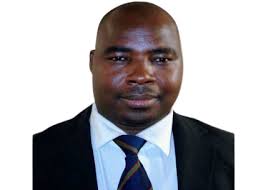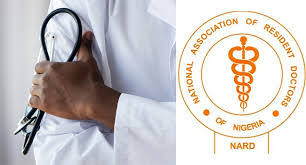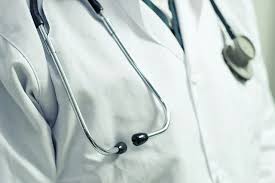
NMA, MDCAN condemn bribery report, say doctors have integrity
The Nigerian Medical Association and the Medical and Dental Consultants Association of Nigeria have refuted a report that surfaced a few days ago, which claimed that two-thirds of Nigerian physicians and nurses demand bribes before treating patients.
"42% of health workers received bribes to speed up the procedure and 15% also took bribes to make the finalisation of the procedure possible," the news source said, citing the National Bureau of Statistics' most recent report.
The associations, however, expressed concern and surprise over the study, claiming that despite the widespread departure of healthcare professionals and the underfunding of the industry, medical practice was nevertheless thriving and upholding high ethical standards.
The report "Nigeria's Corruption: Trends and Patterns" The United Nations Office on Drugs and Crime's Data, Analytics and Statistics Section prepared the third survey on corruption as experienced by the populace, while the NBS handled the survey's execution, fieldwork, and data preparation.
According to the research, 56% of Nigerians in 2023 reported having interacted with a public official at least once in 2022.
Of this number, twenty-four percent dealt with public utility officers and thirty percent had interaction with healthcare experts.
But according to the NBS and UNDOC research, just 4% of Nigerians who interacted with medical professionals—out of the country's 30%—paid a bribe or were asked to pay a bribe and refused.
The report listed bribery as a direct or indirect request meant to facilitate a procedure, a sign of appreciation and a third-party request.
Additionally, the report revealed that about N721bn was paid in cash bribes to public officials, and ranked corruption as fourth among the most important problems affecting the country in 2023.
In an interview, the NMA president, Professor Bala Audu, stated that although he believed in the authenticity of the report due to the status of the NBS and UNODC, it was worrisome.
He pointed out that in spite of the low pay and widespread departure of medical experts from the nation, a small number persisted in offering Nigerians high-quality medical care.
First and foremost, the survey shows that the services that adults in Nigeria most want are physicians and nurses. Thirty percent of adult Nigerians receive medical care from nurses and doctors. According to that survey, physicians and nurses are the busiest of all the public institutions in this nation.
And as everyone knows, the Japa syndrome is to blame for the declining number of physicians and nurses in our nation. It follows that there aren't many nurses or doctors. Among other reasons, one of the reasons why doctors and nurses are fleeing the country is that they are still not paid enough. However, they never stop working hard to deliver the high calibre of treatment that people need," the NMA president insisted.
According to Audu, the survey showed that, in comparison to the demand for their services, healthcare staff had the lowest level of corruption.
He remarked, "The survey also demonstrated that the degree of corruption in the public sector is the lowest amongst doctors and nurses. It is the lowest compared to any public or private sector. That of doctors and nurses is the lowest. And what did the report say? The report said 30 per cent of adults in Nigeria, which is the highest percentage among those seeking public services, are demanding the services of doctors and nurses.
“The level of corruption that was found among the entire 30 per cent that goes to look for, among the entire population of adults who go to look for services from doctors and nurses in the public sector is four per cent.
"Now, that gives you 1.2% if you apply that to the 30% of the population overall. This is the lowest; the whole report contains information on this section. This report is something we take seriously.
The don also underlined that statisticians and epidemiologists working in the health sector have closely examined the study in order to do additional analysis.
Even though the number was the lowest in the nation, he said it was concerning that this was happening.
We shall so get to work on this. We will investigate further into the types of bribes that are being discussed, the health experts that are engaged, and the specific circumstances surrounding them. Ideally, by the next report, we’ll find zero corruption within the health sector,” the NMA president posited.
Audu urged medical professionals to keep a high standard of ethics despite the current environment.
He encouraged the government to reward the high ethical standards and dedication to service that medical professionals have consistently demonstrated.
The NMA president added, “Despite the environment where we are operating, we have been vindicated that the level of ethics amongst health professionals is the highest amongst any professional group in this country and amongst any public sector. It is the highest. Look at what is happening amongst judges, the police and the customs and you’ll understand what I’m talking about.
In terms of the government, I would like them to recognise the excellent ethical standards that medical professionals have shown as well as our ability to serve 30% of the adult population in this nation who are in need of our services while maintaining the lowest possible amount of corruption.
"We give the greatest quality of services while having the least amount of corruption. If you read the study in its entirety, you will find that some public office providers serve less than 10% of adults yet have a corruption rate of more than 70%.
Therefore, I believe that in order for us to reach zero, the health sector should be encouraged to improve, and the other sectors should also learn from what is happening in the health sector so that they can take a leap and introduce more ethical standards in their day-to-day work.”
Also, the president of the Medical and Dental Consultants Association of Nigeria, Professor Aminu Mohammed, expressed surprise over the news report, noting that the health sector was still functioning despite its challenges.
He said, “It’s also surprising to the Association. In fact, if there is any organisation or if there is any system that is still relatively functioning despite challenges, it is healthcare. It’s the only place you can go without knowing anyone or whatever and obtain services without anyone either asking you or giving any excuses based on where you came from or what you do or whatever.
And we see all of our patients in public, not in private, for the most part. As a result, I'm shocked personally. The Association is also shocked that this specific caption can be brought up.
"When you look at the data from the analysis, they estimated that 4% of the population is made up of doctors and nurses. How would you create that caption, then, if it is four percent with others, roughly ten or even more?
The president of MDCAN added that the news article was harming the association's reputation.
Additionally, Professor Oluwarotimi Akinola, the immediate past president of the Society of Gynaecology and Obstetrics of Nigeria, said that practitioners will find the study to be quite disheartening.
Such assertions, in my opinion are erroneous are push factors that fuel the catastrophic haemorrhage of health workers from Nigeria,” he lamented.





